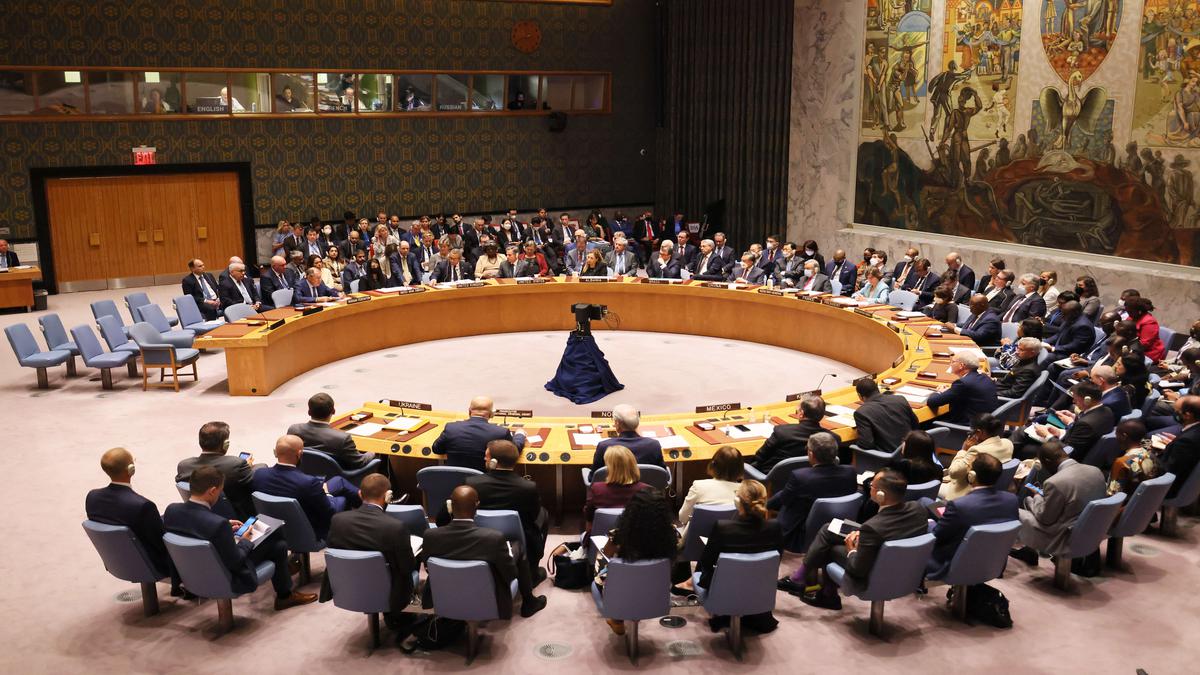Claim: Several social media posts claim that India has been made a permanent member of the United Nations Security Council (UNSC), granting the country veto power. These posts suggest India is now the sixth permanent member alongside the United States, the United Kingdom, France, China, and Russia.
Fact: India has not been granted permanent membership in the UNSC. As of now, the UNSC continues to have five permanent members: the U.S., the U.K., France, China, and Russia. No official announcement or reform has added India as a permanent member.
What’s the Claim?
Posts on social media, particularly on X (formerly Twitter), claim that India has secured permanent membership in the UNSC. Some posts suggest that India, now referred to as “Bharat,” has gained veto power, previously reserved for the five original permanent members.
Evidence:
- Official UN Security Council Website:
According to the official UNSC website, the five permanent members remain unchanged. The last update concerning India’s UNSC membership was as a non-permanent member for the 2021-2022 term. - International Discussions on UNSC Reform:
There is growing international support for reforms to include countries like India in permanent membership. However, no concrete steps or official resolutions have been passed to modify the current structure of the UNSC. - Verification of Non-Permanent Membership:
India’s role as a non-permanent member ended after its two-year term (2021-2022). The current non-permanent members are Algeria, Ecuador, Guyana, Japan, Malta, Mozambique, the Republic of Korea, Sierra Leone, Slovenia, and Switzerland.
UNSC Membership and Veto Power
The UNSC consists of five permanent members with veto power, meaning they can block any resolution, regardless of the majority vote. The 10 non-permanent members, elected for two-year terms, do not possess veto rights.
Has India Been Made a Permanent Member?
No, India has not been added as a permanent member of the UNSC. Despite ongoing discussions for reform, the council’s structure remains unchanged, with only five countries holding permanent seats.
Conclusion: The viral claims suggesting that India has become a permanent UNSC member are false. While there is substantial global support for India’s inclusion, no official decisions have been made, and the current list of permanent members remains the same.
Misinformation refers to false or inaccurate information that is shared without the intent to deceive. It often spreads because people unknowingly believe it to be true, and share it in good faith. Unlike disinformation, which is deliberately created to mislead, misinformation is generally the result of errors, misunderstandings, or misinterpretations.
Examples of Misinformation:
- A person sharing an outdated or incorrect news report.
- Spreading rumors about a political event without verifying the facts.
- Sharing a doctored image or video, thinking it is authentic.
Measures to Fight Misinformation:
- Verify Before Sharing:
- Cross-check information with reliable sources before sharing it on social media or other platforms.
- Use fact-checking websites like FactCheck India, Snopes, or government sites to verify claims.
- Improve Digital Literacy:
- Learn how to distinguish between trustworthy sources and those prone to spreading misinformation.
- Understand the characteristics of clickbait, sensationalist headlines, or poorly researched articles.
- Critical thinking helps people evaluate whether the information is logical, credible, and consistent.
- Check Visuals:
- Use reverse image searches (e.g., Google Image Search, TinEye) to determine whether a photo or video is authentic or taken out of context.
- Look for watermarks or evidence that media content may have been manipulated.
- Question the Source:
- Always check the source of the information. Is it a reputable news outlet? Is the author or organization known for credibility?
- Be cautious about anonymous sources or news without citations or verifiable evidence.
- Avoid Emotionally Charged Content:
- Misinformation often plays on strong emotions like fear, anger, or excitement.
- Before sharing something that evokes a strong emotional reaction, pause and verify its accuracy.
- Strengthen Community Responsibility:
- Encourage friends, family, and peers to verify information before sharing.
- If someone is spreading misinformation, engage politely and provide them with accurate information. Help them understand the importance of responsible sharing.
- Report Misinformation:
- On social media platforms, report posts that you suspect are spreading false information. Many platforms, like Facebook, Twitter, and YouTube, have features for reporting misinformation.
- Use Fact-Checking Tools:
- Utilize fact-checking browser extensions (e.g., NewsGuard, Factmata) that help assess the credibility of news websites.
- Keep updated with fact-checking platforms that regularly debunk viral misinformation.
- Educate Yourself and Others:
- Share techniques for identifying misinformation with your network. The more people who are informed, the harder it becomes for misinformation to spread.
- Support public campaigns or educational programs aimed at teaching media literacy and responsible online behavior.


Hello. magnificent job. I did not anticipate this. This is a splendid story. Thanks!
Post writing is also a excitement, if you be familiar with afterward you can write or else it is complicated to write.
Este site é realmente fascinate. Sempre que acesso eu encontro novidades Você também pode acessar o nosso site e descobrir mais detalhes! informaçõesexclusivas. Venha saber mais agora! 🙂
Nice post. I was checking continuously this blog and I’m inspired! Extremely helpful info specifically the remaining part 🙂 I deal with such information much. I used to be looking for this certain info for a long time. Thanks and best of luck.
What’s Happening i’m new to this, I stumbled upon this I’ve found It absolutely useful and it has helped me out loads. I hope to contribute & assist other users like its helped me. Great job Factcheck India Team with this great content.